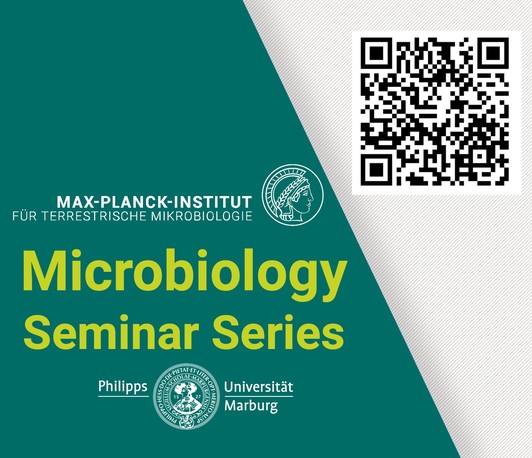Genetic and non-genetic solutions to survive a lethal metabolic stress in Methylobacterium extorquens
Microbiology Seminar Series
- Date: Dec 4, 2023
- Time: 01:15 PM (Local Time Germany)
- Speaker: Prof. Christopher Marx
- Dept. of Biological Sciences, University of Idaho, USA
- Location: MPI for Terrestrial Microbiology
- Room: Lecture Hall / Hybrid
- Host: Prof. Dr. Tobias Erb
- Contact: toerb@mpi-marburg.mpg.de

Faced with a lethal stress, microbial populations must either evolve genetic resistance or die, right? For Methylobacterium extorquens, lethal levels of the toxic metabolic intermediate formaldehyde can select for mutants beneficial in this environment, but I will discuss three alternatives that we have uncovered in this system. First, a rare minority of the genetically-identical cells already exhibit sufficient phenotypic heterogeneity to be able to survive and grow. Second, at high enough cell densities, populations can collectively survive with all cells able to tolerate the stress. Third, cell lineages that have experienced formaldehyde stress in the past can pass down this tolerance epigenetically to enable survival and growth many generations later. These multiple avenues lead to complex dynamics of that greatly impact genetic adaptation.